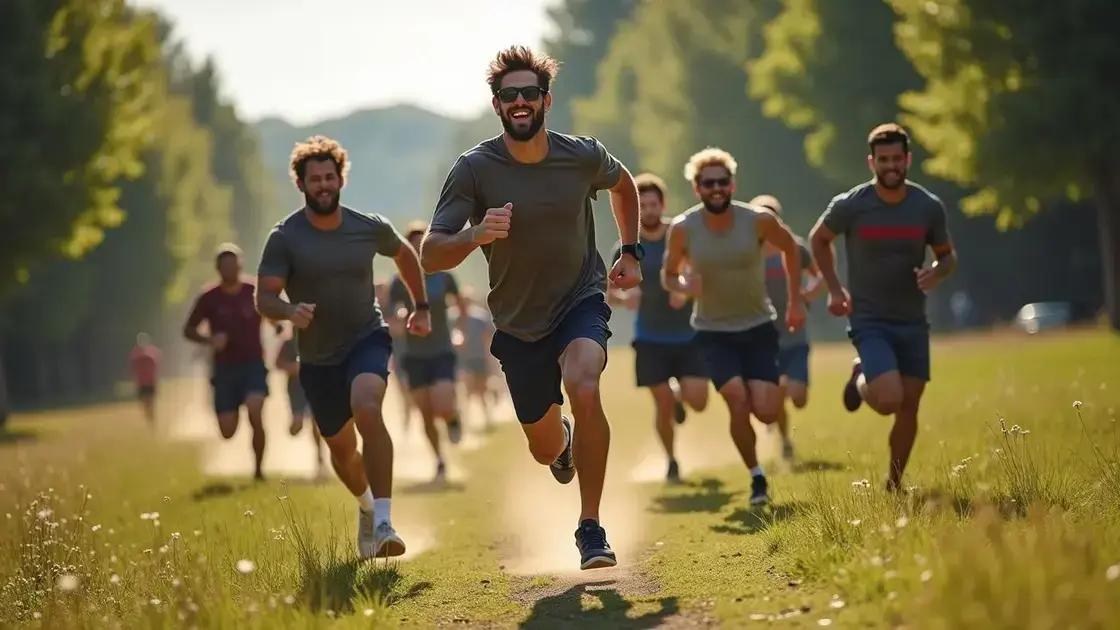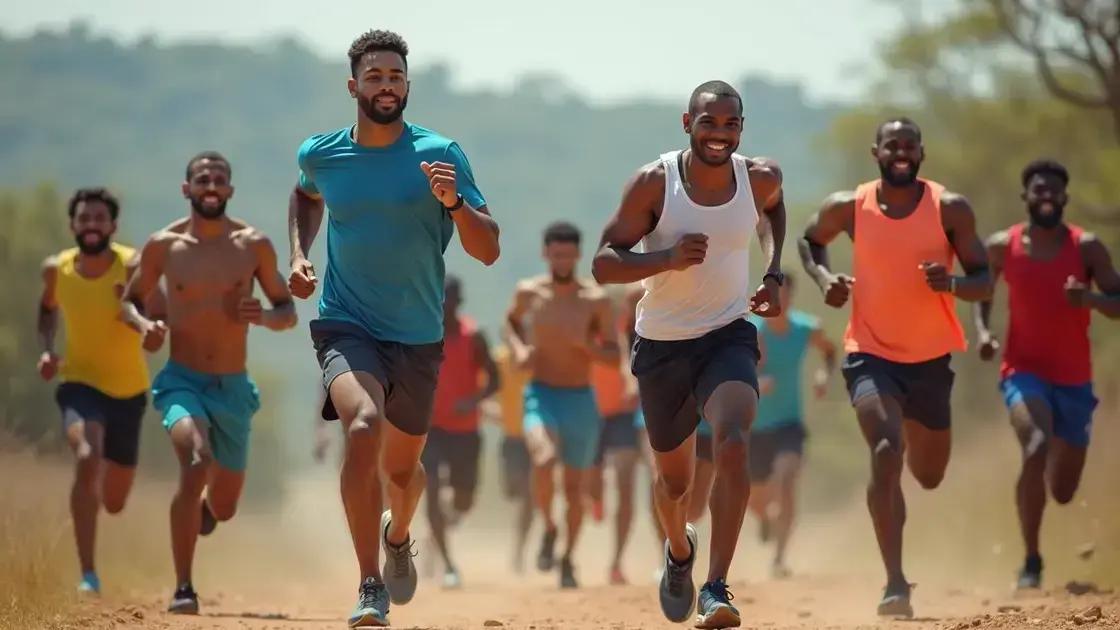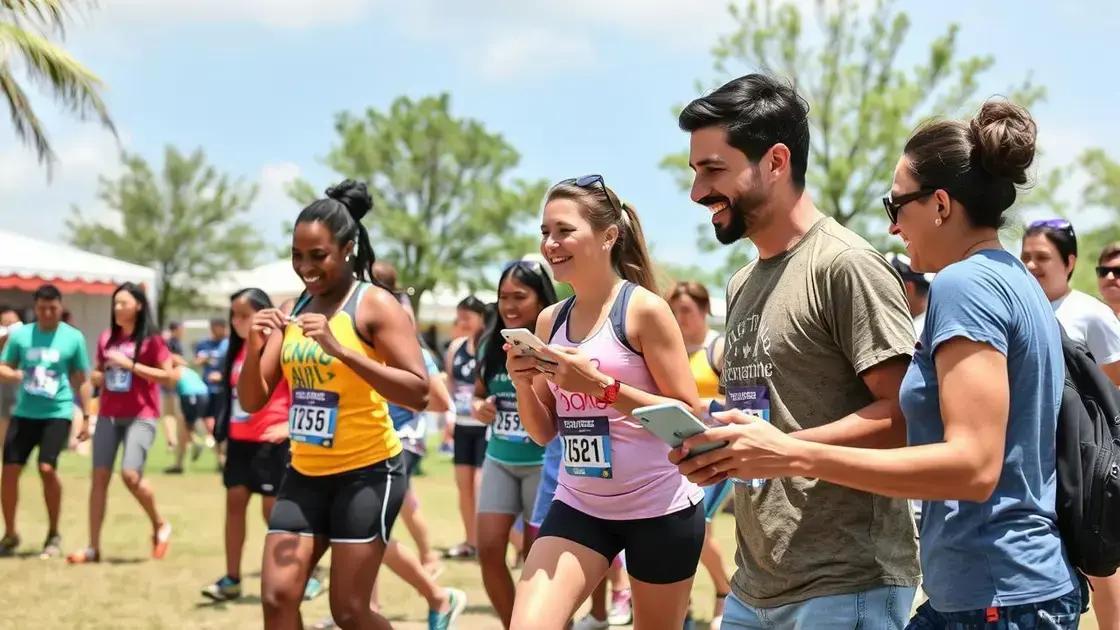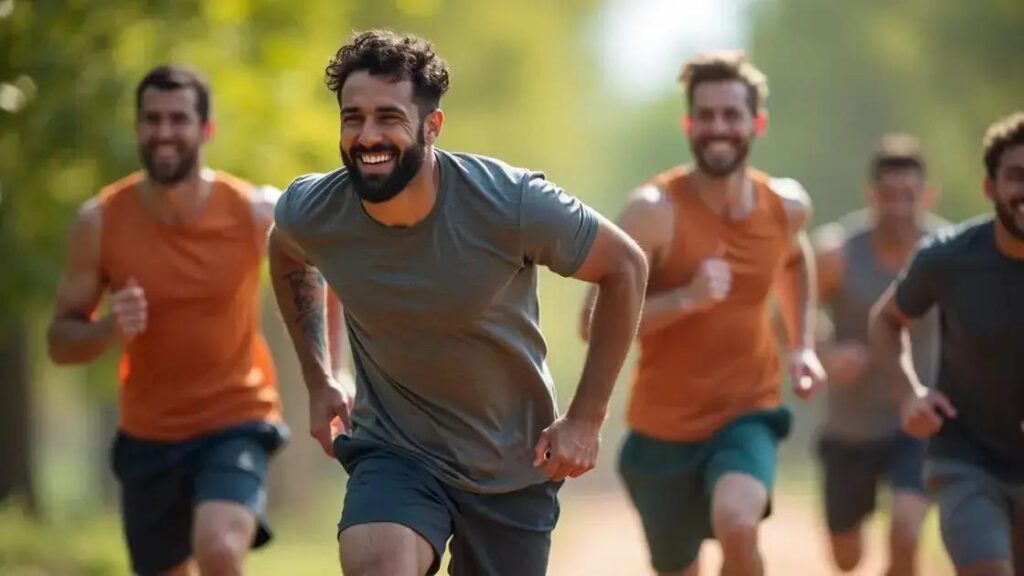Social fitness challenges have a significant impact on men’s health, improving physical fitness, boosting mental well-being, fostering community engagement, and providing a supportive environment to achieve health goals. By participating in these challenges, men experience enhanced cardiovascular health, increased strength, and better emotional support, making fitness enjoyable and sustainable.
The impact of social fitness challenges on men’s health is becoming increasingly recognized. These innovative initiatives not only boost physical well-being but also strengthen community ties. Participating in these challenges can lead to healthier lifestyles and improved mental health outcomes. In this article, we will explore the various aspects of social fitness challenges, including their benefits for physical and mental health, and how to create engaging challenges for effective participation.
Understanding Social Fitness Challenges

Understanding social fitness challenges is key to recognizing their growing importance in promoting health, particularly among men. These challenges typically involve group participation where individuals engage in various physical activities, from running to strength training. The idea is to foster a sense of camaraderie, accountability, and motivation.
What Are Social Fitness Challenges?
Social fitness challenges can take many forms, such as virtual competitions, community events, or even informal group workouts. They encourage participants to engage in regular exercise while connecting with others who share similar goals. Through these platforms, men can discover that fitness is not just a solitary journey, but a shared experience.
How Do They Work?
Typically, participants commit to specific fitness goals for a defined period. For instance, a challenge might involve tracking daily steps, completing a certain number of workouts, or trying new physical activities. Many challenges utilize apps or social media to share progress, inspire others, and build community support.
Key Features of Effective Challenges
Successful social fitness challenges often include features like:
- Engagement: Regular updates and interaction keep participants motivated.
- Prizes: Incentives can provide extra motivation to achieve goals.
- Variety: Offering multiple activities can cater to different interests and fitness levels.
Through understanding social fitness challenges, men can effectively participate, reap their benefits, and improve their overall health and fitness levels.
Benefits for Men’s Physical Health

Participating in social fitness challenges offers many benefits for men’s physical health. Engaging in regular physical activity not only helps maintain a healthy weight but also supports overall fitness levels.
Improved Cardiovascular Health
Social fitness challenges encourage activities that raise the heart rate. Consistent participation can strengthen the heart, improve circulation, and reduce the risk of heart disease. Activities like running, cycling, and group sports are excellent examples of cardiovascular exercises commonly found in these challenges.
Increased Strength and Muscle Tone
Many challenges incorporate strength training exercises. These can enhance muscle mass, improve metabolism, and boost overall physical strength. Men participating in weightlifting or bodyweight exercises within these groups can experience significant improvements in muscle definition and endurance.
Enhanced Flexibility and Balance
Fitness challenges often include a mix of activities, including flexibility training like yoga. Improved flexibility can reduce injury risk, enhance range of motion, and maintain functional fitness throughout life.
Boosted Energy Levels
Regular exercise, as promoted by social fitness challenges, can lead to higher energy levels. This results in increased productivity in daily life and improved stamina during physical activities. Men often find that their energy levels rise as they commit to regular participation.
Weight Management
Social fitness challenges often lead to healthier lifestyle choices, including better nutritional habits. Maintaining a healthy weight through these combined efforts helps reduce the risk of several chronic conditions, such as obesity, diabetes, and hypertension.
Overall, the physical health benefits gained from social fitness challenges are substantial. By engaging in regular activities and being part of a supportive community, men can enjoy a healthier, more active lifestyle.
Mental Health and Community Engagement

Participating in social fitness challenges significantly affects mental health and community engagement. These activities do not just promote physical wellness; they also foster emotional well-being and stronger social bonds.
The Power of Connection
Being a part of a community fitness challenge allows men to connect with others who have similar health goals. This sense of belonging can combat feelings of loneliness and isolation. Social interaction is crucial for mental health, and engaging with peers can provide support, encouragement, and friendship.
Boosted Self-Esteem
Achieving fitness goals in a social setting can enhance self-esteem and confidence. When men engage in challenges, they often see measurable improvements in their physical capabilities, which can lead to a more positive self-image. Celebrating these achievements with others can amplify the feeling of success.
Stress Relief Through Exercise
Physical activity is known to reduce stress and anxiety. By participating in fitness challenges, men can escape daily pressures and focus on their health. Activities like running, lifting weights, or team sports provide an outlet for pent-up energy and can lead to feelings of relaxation and accomplishment.
Developing Support Networks
Engaging in social fitness challenges helps to build supportive relationships. These networks can serve as a sounding board for personal challenges, whether related to fitness or life in general. Friends made through these activities often become reliable sources of emotional support.
The link between mental health and community engagement in social fitness challenges is powerful. By committing to these initiatives, men not only improve their physical health but also nourish their mental well-being, creating a holistic approach to health.
Creating Effective Fitness Challenges

Creating effective fitness challenges requires careful planning and consideration to motivate participants and ensure engagement. Here are key elements to consider:
Set Clear Goals
It is essential to define specific, measurable goals for the challenge. For example, participants could aim to walk a certain number of steps, lose a specific amount of weight, or complete a set number of workouts. Clear goals help keep participants focused and provide a sense of accomplishment.
Make It Inclusive
Design challenges that accommodate various fitness levels. Providing different categories or options allows everyone to participate, whether they are beginners or more experienced individuals. This inclusion encourages a supportive atmosphere where everyone can thrive.
Utilize Technology
Incorporating an app or online platform can enhance the experience. Participants can log their progress, communicate with others, and receive reminders. Using technology can also foster healthy competition and community through leaderboards and social sharing.
Encourage Community Support
Building a community around the challenge is vital for success. Participants should be encouraged to connect, share progress, and offer support. Organizing group workouts or virtual meet-ups can help develop friendships and camaraderie among participants.
Incentivize Participation
Offering rewards can motivate participants to stay committed to their goals. Prizes can range from fitness gear to gift cards or even recognition within the community. Celebrating achievements, no matter how small, keeps participants engaged and excited.
Creating effective fitness challenges involves thoughtful design, ensuring goals are clear, and fostering a sense of community. By focusing on inclusivity and support, men can achieve meaningful results while enjoying the journey.
Transforming Men’s Health Through Social Fitness Challenges
Social fitness challenges significantly impact men’s health, improving both physical and mental well-being. By fostering community engagement, these initiatives provide a support system that enhances motivation and accountability.
Understanding the benefits, including cardiovascular health, increased strength, and mental wellness, highlights the importance of these challenges. With effective strategies to create inclusive and engaging fitness challenges, men can participate, connect with others, and experience positive results.
As we explore the lasting effects of social fitness initiatives, it is clear that embracing these challenges can lead to a healthier, happier lifestyle for all participants.
FAQ – Frequently Asked Questions about the Impact of Social Fitness Challenges on Men’s Health
What are social fitness challenges?
Social fitness challenges are organized activities that encourage individuals to engage in physical exercise together, providing motivation and support.
How do fitness challenges improve men’s physical health?
Fitness challenges promote regular exercise, leading to improved cardiovascular health, increased strength, flexibility, and better weight management.
What are the mental health benefits of participating in these challenges?
These challenges can reduce stress, increase self-esteem, and foster a sense of community, combating loneliness and enhancing emotional well-being.
How can I create an effective fitness challenge?
To create an effective fitness challenge, set clear goals, make it inclusive, utilize technology, encourage community support, and incentivize participation.
Can beginners participate in fitness challenges?
Yes, fitness challenges should be designed to accommodate all fitness levels, allowing beginners to participate and progress at their own pace.
What role does technology play in fitness challenges?
Technology can enhance the experience by enabling participants to track progress, communicate with others, and access resources through apps or online platforms.













